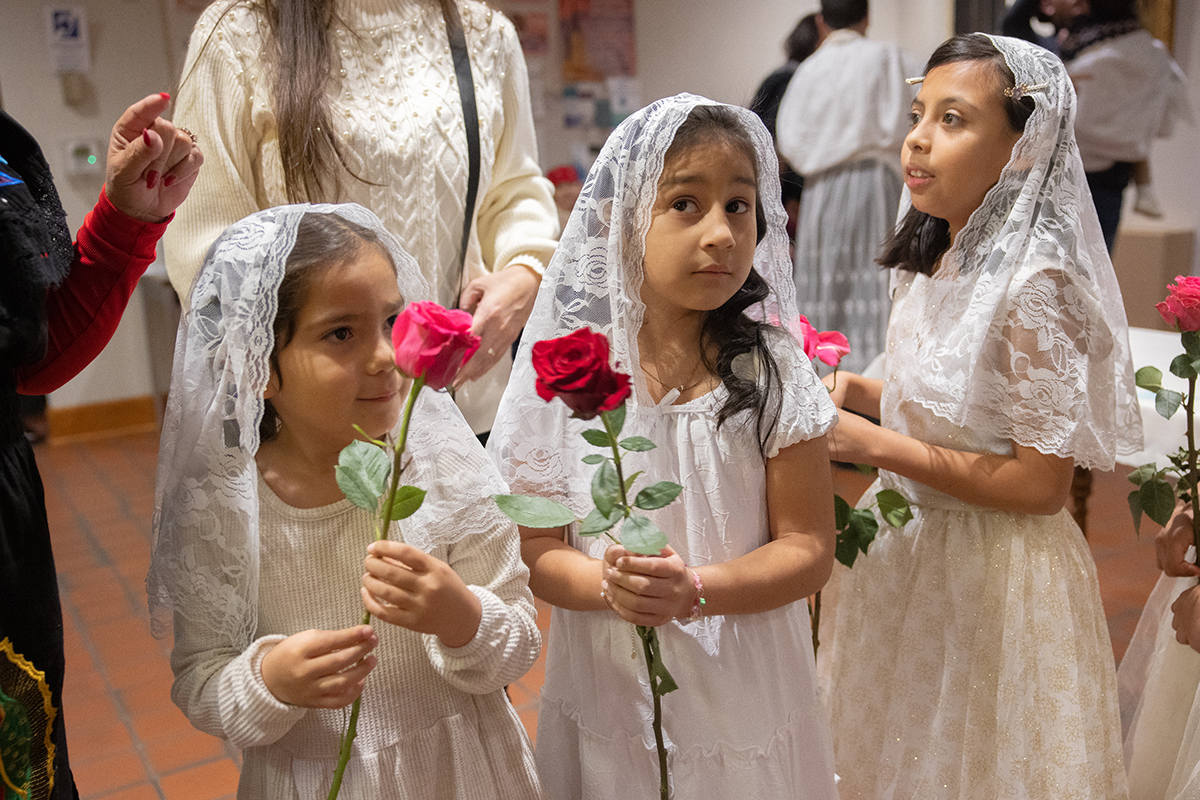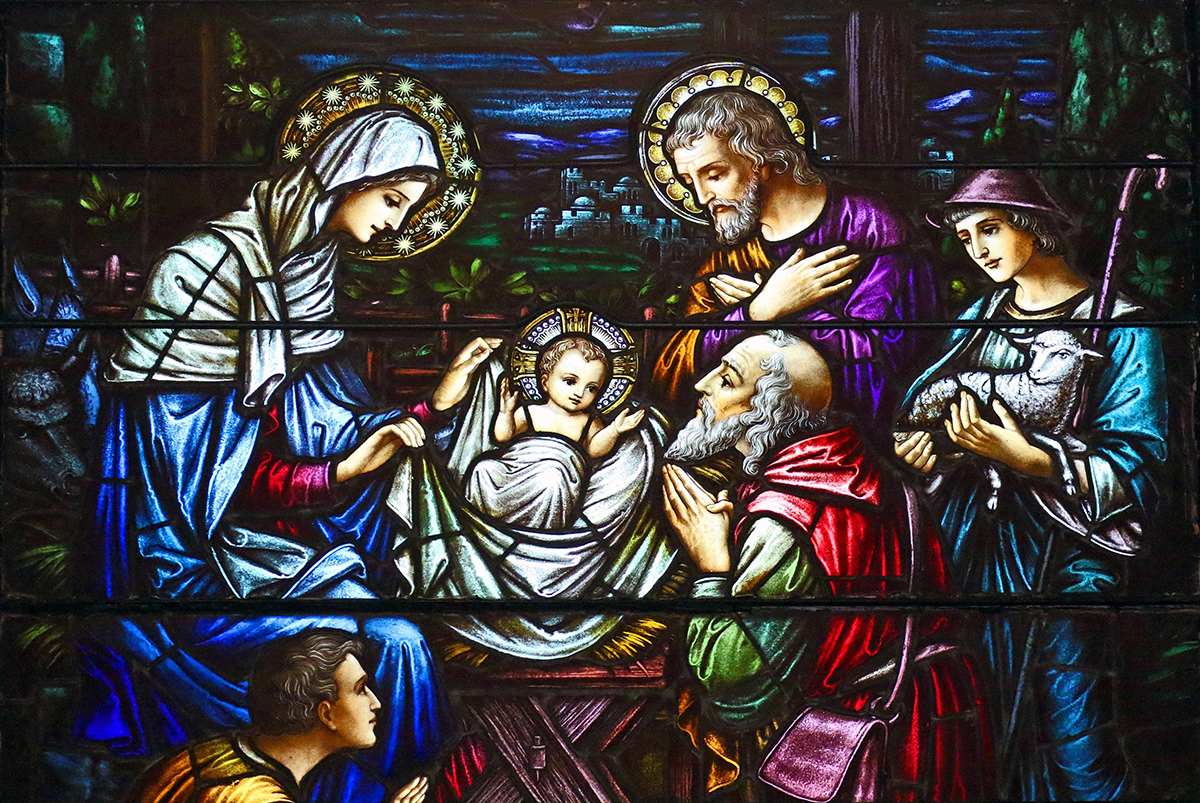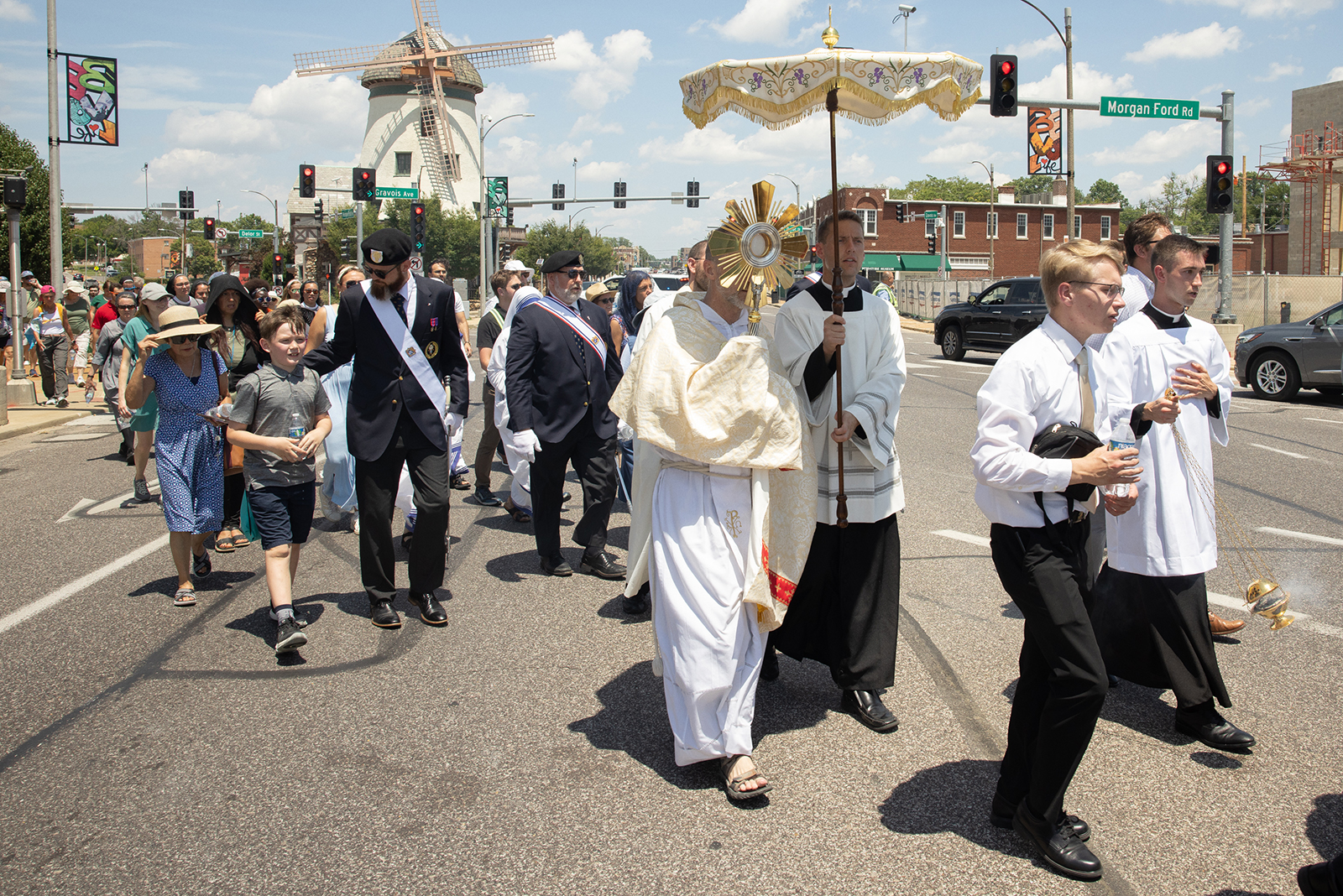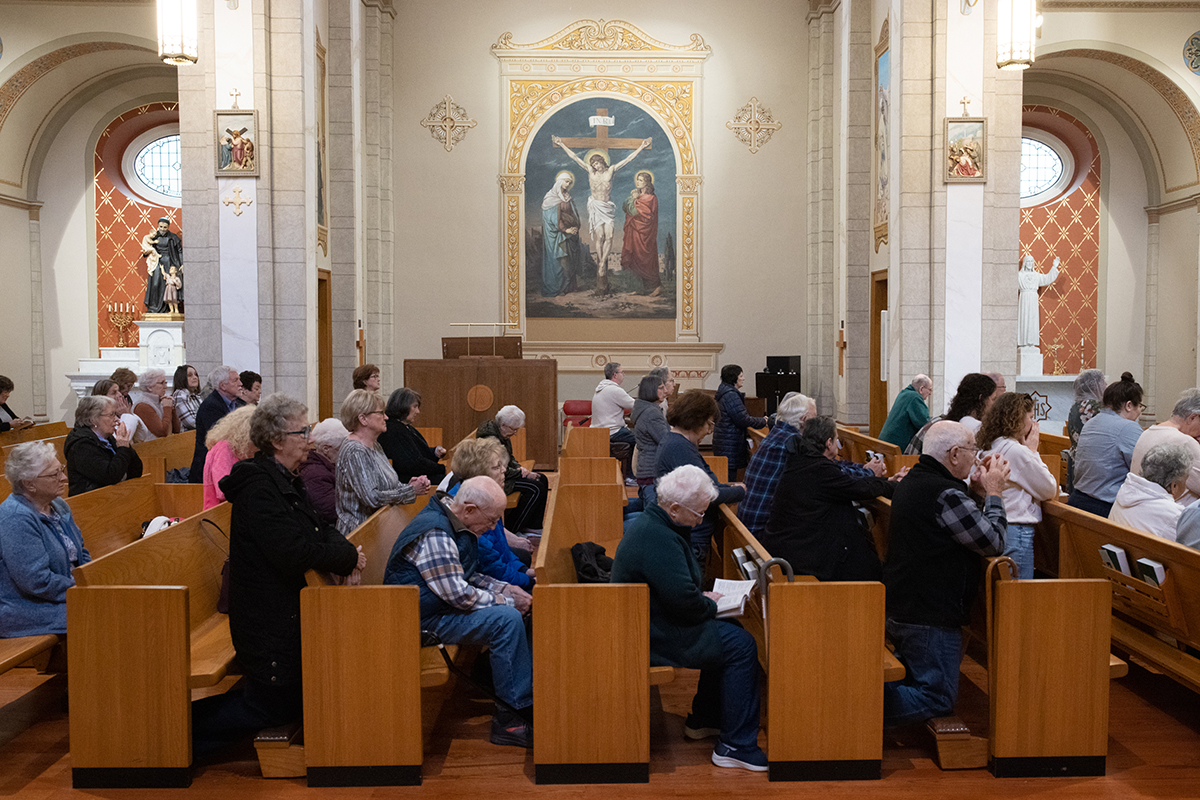Want to end abortion? Prayer and fasting is an effective method of penance that unites us with Christ

This penitential act is an effective form of conversion of others
Prayer and fasting are an essential part of a Catholic life. This age-old practice unites our sufferings with Christ’s; but when done with an intention for a specific person or situation, this form of penance heightens our awareness and unites us with that intention.
In modern times, Catholics have offered praying and fasting for a multitude of intentions — for persecuted Christians in the Middle East, as well as for broader issues, such as protection of life, marriage and religious liberty. Certainly, the faithful are called to prayer and fasting for one of the greatest issues of our time — for innocent lives lost to abortion, as well as an end to this evil act.
Prayer and fasting give us strength against the temptations of sin and imparts us with the freedom to rise above the things that hinder us from doing God’s will. There are many examples of prayer and fasting in Scripture. Going back to the Old Testament, the Book of Tobit notes that “Prayer with fasting is good. Almsgiving with righteousness is better than wealth with wickedness. It is better to give alms than to store up gold.” (Tobit 12:8)
St. Peter Chrysologus, a doctor of the Church, said:
“There are three things, my brethren, by which faith stands firm, devotion remains constant, and virtue endures. They are prayer, fasting and mercy. Prayer knocks at the door, fasting obtains, mercy receives. Prayer, mercy and fasting: these three are one, and they give life to each other. Fasting is the soul of prayer, mercy is the lifeblood of fasting. Let no one try to separate them; they cannot be separated. If you have only one of them or not all together, you have nothing. So if you pray, fast; if you fast, show mercy; if you want your petition to be heard, hear the petition of others. If you do not close your ear to others you open God’s ear to yourself.”
St. Francis de Sales said that the best reason we can have for doing anything in life is because Jesus did so. One of the greatest examples of prayer and fasting in scripture is when Jesus, in preparation for His public ministry, fasted for 40 days in the desert. Those works performed together gave Him strength against the temptations of the Devil.
The first apostles also prayed and fasted when making important decisions about the early Church.“While they were worshiping the Lord and fasting, the Holy Spirit said, ‘Set apart for me Barnabas and Saul for the work to which I have called them.’ Then, completing their fasting and prayer, they laid hands on them and sent them off.” (Acts 13:2)
Paul and Barnabas “appointed presbyters for them in each church and, with prayer and fasting, commended them to the Lord in whom they had put their faith.” (Acts 14:23)
The Catechism of the Catholic Church states: “The interior penance of the Christian can be expressed in many and various ways. Scripture and the Fathers insist above all on three forms, fasting, prayer, and almsgiving, which express conversion in relation to oneself, to God, and to others. Alongside the radical purification brought about by Baptism or martyrdom they cite as means of obtaining forgiveness of sins: effort at reconciliation with one’s neighbor, tears of repentance, concern for the salvation of one’s neighbor, the intercession of the saints, and the practice of charity ‘which covers a multitude of sins’” (CCC 1434).
With prayer and fasting, we practice a form of self-denial, that also can be effective in the conversion of others. It is a penance that we can offer toward the redemption of others. St. Paul in his letter to the Colossians, said, “now I rejoice in my sufferings for your sake, and in my flesh I complete what is lacking in Christ’s afflictions for the sake of His body” (Col 1:24). This sacrificial offering is a way for us to seek redemption from our human failings.
>> Fasting and abstinence
As penitential practices, fasting and abstinence unite us to the redemptive suffering and death of the Lord. Latin Church Catholics in the United States are especially encouraged to abstain from meat on all Fridays throughout the year, in remembrance of the day Christ died for our salvation, and to observe fasting during the weekdays of Lent. Both fasting and abstinence are, however, obligatory on Ash Wednesday and Good Friday. Abstinence from meat is further required on the Fridays during Lent, unless a solemnity falls on a Friday. The norm consists of abstaining from meat; this abstinence does not include eggs, milk products, or sauces made with animal fats.
There are many forms of fasting. The norm consists of eating only one full meal each day; two smaller meals may also be taken, as needed, but not to equal a full meal. Some Catholics may elect to observe a literal all-day fast, or give up particular foods or drinks in addition to their abstinence from meat. Please consult a priest if you have further questions.
Planned Parenthood files appeal to regain license
St. Louis judge extends preliminary injunction through June 28
BY JENNIFER BRINKER
A St. Louis Circuit judge has allowed Planned Parenthood in St. Louis to temporarily continue abortions, while the Missouri Department of Health and Senior Services has denied the clinic’s application for renewal.
Reproductive Health Services of Planned Parenthood of the St. Louis Region filed a complaint with the state’s Administrative Hearing Commission June 24. The same day, Judge Michael Stelzer ordered that Planned Parenthood may continue abortions through June 28, but he said that the clinic must now enter the appeals process through the Administrative Hearing Commission.
Planned Parenthood has asked the commission to be allowed to continue performing abortions without a license; the clinic also asked the commission to force the state health department to renew its abortion facility license. A hearing has been scheduled for Aug. 1 at the Wainwright State Office Building in St. Louis.
The health department rejected Planned Parenthood’s application for renewal on June 21. Health officials have been seeking to interview several physicians that have worked at the clinic as part of its investigation. Five of those doctors have refused to be interviewed. Planned Parenthood has said that it has no power to compel those doctors to speak with investigators as they are not directly employed by the clinic.
Parson and the health department have noted several deficiencies, including three recent cases of failed abortions at the St. Louis clinic, including one in which the patient was rushed to the hospital for emergency surgery. A statement from the health department noted that there was least one incident in which patient safety was gravely compromised, failed surgical abortions in which patients remained pregnant, as well as concerns about quality control and communication with a contracted pathology lab and failure to obtain informed consent.
Reproductive Health Services of Planned Parenthood of the St. Louis Region filed a lawsuit against the state May 28 in St. Louis Circuit Court. It alleged that the Missouri Department of Health and Senior Services is attempting to shut down the abortion clinic by “unlawfully conditioning” a decision on its license renewal application. Health department director Dr. Randall Williams and Gov. Mike Parson also were named as defendants in the suit.
“Planned Parenthood is losing its license because it failed to meet basic standards of care, placed multiple patients in life threatening situations, performed multiple failed abortions where patients remained pregnant, and intentionally impeded the state’s health investigation by not allowing health inspectors to talk to the abortion doctors,” Parson said in a statement. “If you don’t comply with the law, there will be consequences. If you don’t provide a standard of care that ensures the safety of women, you shouldn’t be allowed to operate. It’s that simple. If Planned Parenthood can show it is abiding by the laws and regulations here in the State of Missouri, it has every right, under the law, to have its license renewed and continue to provide patient services.”
Planned Parenthood in St. Louis, located in the Central West End, is the only abortion clinic in Missouri. If it loses its license, Missouri would become the first state without an operating abortion clinic since the 1973 Roe vs. Wade decision. Non abortion-related services would still be offered at the clinic.
Prayer and fasting are an essential part of a Catholic life. This age-old practice unites our sufferings with Christ’s; but when done with an intention for a specific person or … Want to end abortion? Prayer and fasting is an effective method of penance that unites us with Christ
Subscribe to Read All St. Louis Review Stories
All readers receive 5 stories to read free per month. After that, readers will need to be logged in.
If you are currently receive the St. Louis Review at your home or office, please send your name and address (and subscriber id if you know it) to subscriptions@stlouisreview.com to get your login information.
If you are not currently a subscriber to the St. Louis Review, please contact subscriptions@stlouisreview.com for information on how to subscribe.





